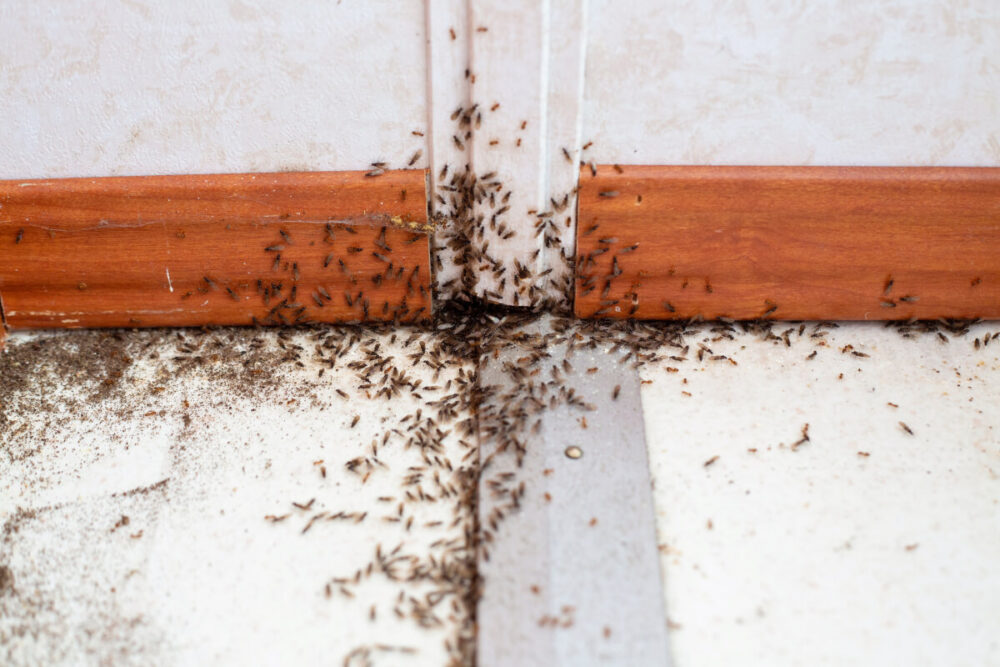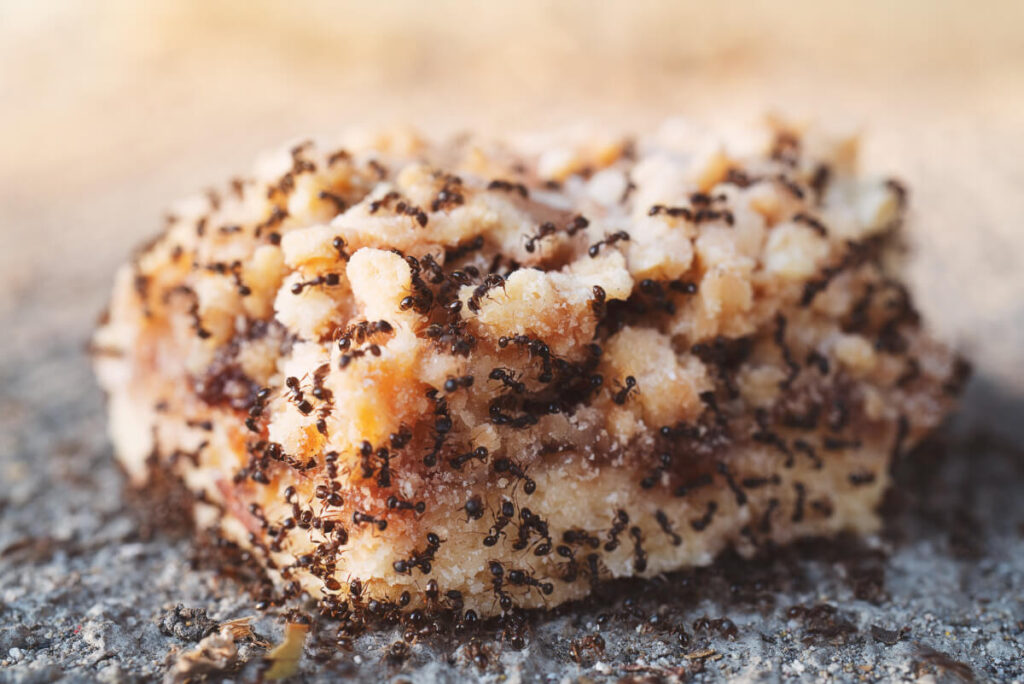


Ants are some of the most common nuisance pests you can encounter, with millions of insects making their way across the United States alone per day. Common ant species like pavement ants regularly invade homes for food sources, while more resilient species can take up entire city blocks. The best way to get rid of these unwanted pests (and avoid a few insect stings or bites in the process) is to understand the best ways to get rid of them efficiently.
So what's the difference between pavement ants and Argentine ants? Argentine ants tend to have bigger colonies and can spread out for a massive infestation of your home. Pavement ants generally confine themselves to the outdoors and crack in the pavement, though a nearby ant colony can still be a major pest if your home is nearby. Understanding the difference between these two species is the key to getting rid of them both.
Learn More: Argentine Ants vs Pharaoh Ants
While both types of ants don't cause significant structural damage to your home, they can still be quite troublesome to deal with since they can attack your food, bring bacteria near your area, and overall cause a mess in their surroundings. But while both ants seem distinctly the same with their behavior, they have a few key differences that are crucial to learning how to get rid of them:
Argentine ants are extremely adaptable and can settle almost anywhere, though they especially prefer warm and damp places that are near water sources and food sources. Some of their favorite dwelling places are in the soil, tree stumps, tree limbs, tree branches, and piles of wood or damaged wood. They may even fight and destroy another ant species' nest and take it over as their own.
In contrast, pavement ants exclusively make their home in the cracks of pavement or nearby wall voids. They rarely nest in houses unless the environment is ideal, and will usually settle for places like the garage, the driveway, or a stone-covered patio. However, if a single colony grows large enough, a new queen may enter the exterior walls of your property to settle inside.
An Argentine ant infestation is usually a supercolony of ants, made of thousands of workers and hundreds of queens. They multiply extremely fast and spread over a wide area, though they are social insects and will often link their nests to one another. If left unchecked, they can evict native species of ants in the area and multiply to millions of insects.
Pavement ants can create large colonies of their own, but most pest control professionals generally agree that their colony sizes are far smaller than Argentine ants. This may be because competing queens in a colony would rather move away from the main nest, which limits the size of the overall population.
Argentine ants will eat almost anything, owing to their large colony sizes and their need to feed the thousands of worker ants that they use for foraging. However, they have a food preference for sugary food or sweet foods, and will usually settle near honeydew-producing insects when access to liquid sugar isn't readily available. As a result, they usually end up foraging and making contact with people around the fall, which is when heated buildings and winter stockpiles of food are an attractive target.
Meanwhile, pavement ants usually create foraging trails to a nearby food source, which can range from pet food to other dead insects. They have a particular preference for greasy foods, which puts them in contact with many of the foods in your kitchen.
Otherwise, these ants will more or less behave the same: making ant trails when the colony is large enough, settling near standing water or other food sources, and creating satellite colonies if left untreated. Since they can spread rapidly and quite far, they can pose an extensive public health risk across an entire neighborhood.

So how do you get rid of these ants? There are several methods that you can try (ranging from ant killer to ant repellent) but by far the best and most reliable method of removing these ants is by using ant bait.
Ant bait has plenty of advantages that help it become an effective method of removing ants, including but not limited to:
One major draw of using ant bait is that the ants themselves will naturally seek out and consume your bait, which removes the pressure of having to find or reach the main colony or nest. Simply place your bait tray or bait disc near areas you know where the ants forage for food, and it'll do the rest.
Ant baits are deliberately designed to act slowly, giving the affected ants a chance to bring back the bait to the rest of the colony. With enough baited ants, it's possible to deal a crippling blow to the overall ant population, especially if the queen manages to take some of the bait as well.
Baits don't work overnight - depending on your colony size, you'll need several refillable bait stations out for a few weeks. Fortunately, they're easy to use and spread all around your property, and don't require a lot of upkeep aside from being placed in the ideal locations.
Read More: How To Prevent Argentine Ants From Entering Your Home
Consistent baiting may not always be enough to get rid of an ant infestation. Argentine ants in particular have a reputation for being difficult to remove with their large colony sizes, and can easily resettle back into areas where they were driven away. If you absolutely want to make sure that your ant problem has been solved, you should get a professional to do it for you.
Hiring pest management professionals can give you the peace of mind that your ant problem won't be coming back - with the benefit of pest-proofing your home against future invaders. They can give you personalized recommendations on how to prevent a small infestation from getting bigger and can work with your contractors to make sure any changes you make to your property won't make you more susceptible to rodents or insects.

Pavement ants can be troublesome to keep out of your property, but they're somewhat easier to manage than Argentine ant colonies. By choosing the right kind of bait for each ant species, you're able to take care of any of these ant infestations without too much issue - though if you want to make sure that you've gotten rid of all ants on your property, you should consult a professional.
PermaKill Exterminating has extensive experience with dealing with almost any type of invasive species of insects or pests, especially Argentine ant colonies. We use long-term solutions that can eradicate the entire colony, with preventative methods that keep the ants from coming back.
To learn more about our services, call us today to get your free estimate.
Read More: How to Stop Argentine Ants From Invading Your Home